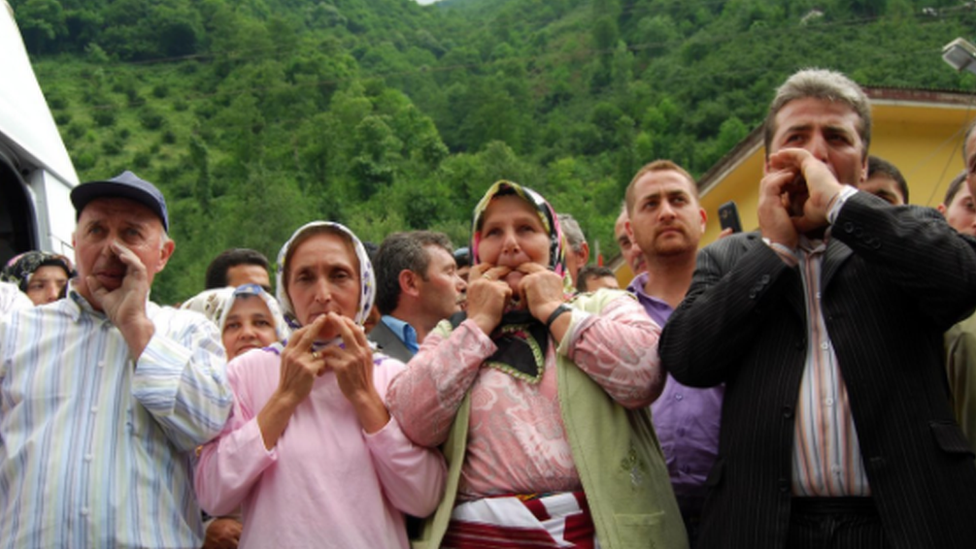Turkey's whistled 'bird language' under threat from mobiles
- Published

Kuskoy villagers are the last fluent speakers of the whistled language
The United Nations cultural agency has named the "bird language" of Black Sea villagers in northern Turkey as an endangered part of world heritage in need of urgent protection.
About 10,000 people, mostly in the Canakci district of Giresun Province, use the language - a highly-developed system of whistling - to communicate across long distances in their rugged mountain terrain, says in a news release announcing its decision.
The language joins the "List of Intangible Cultural Heritage in Need of Urgent Safeguarding" because of the impact of social and technological change, Unesco says, singling out the increasing use of mobile phones as a "key threat to its survival".
Turkey's Culture Minister Numan Kurtulmus welcomed the move, tweeting his congratulations to his "fellow Black Sea coast residents who have ".
The bird language is still commonly used in the village of Kuskoy, which translates as "bird village", but 50 years ago it was widespread across the Black Sea regions of Trabzon, Rize, Ordu, Artvin and Bayburt.
In those parts it survives only in a "few words spoken by shepherds", Turkey's reports.
Kuskoy is making efforts to keep the practice alive through its annual Bird Language Festival, and the head of the Bird Language Cultural Association, Seref Kocek, said local people have welcomed the news "", Milliyet newspaper reports.
The district authorities also started teaching the language at primary school level since 2014, Hurriyet reports.
But Unesco warns that Kuskoy's bird language, like dozens of other whistling tongues in mountainous and forested areas around the world, still faces an uncertain future "unless essential safeguarding measures are undertaken, using an integrated approach".
Next story: Russian seven-year old gets army call-up papers
Kuskoy is making efforts to teach the language to the next generation
Reporting by Martin Morgan
Use #NewsfromElsewhere to stay up-to-date with our reports via .